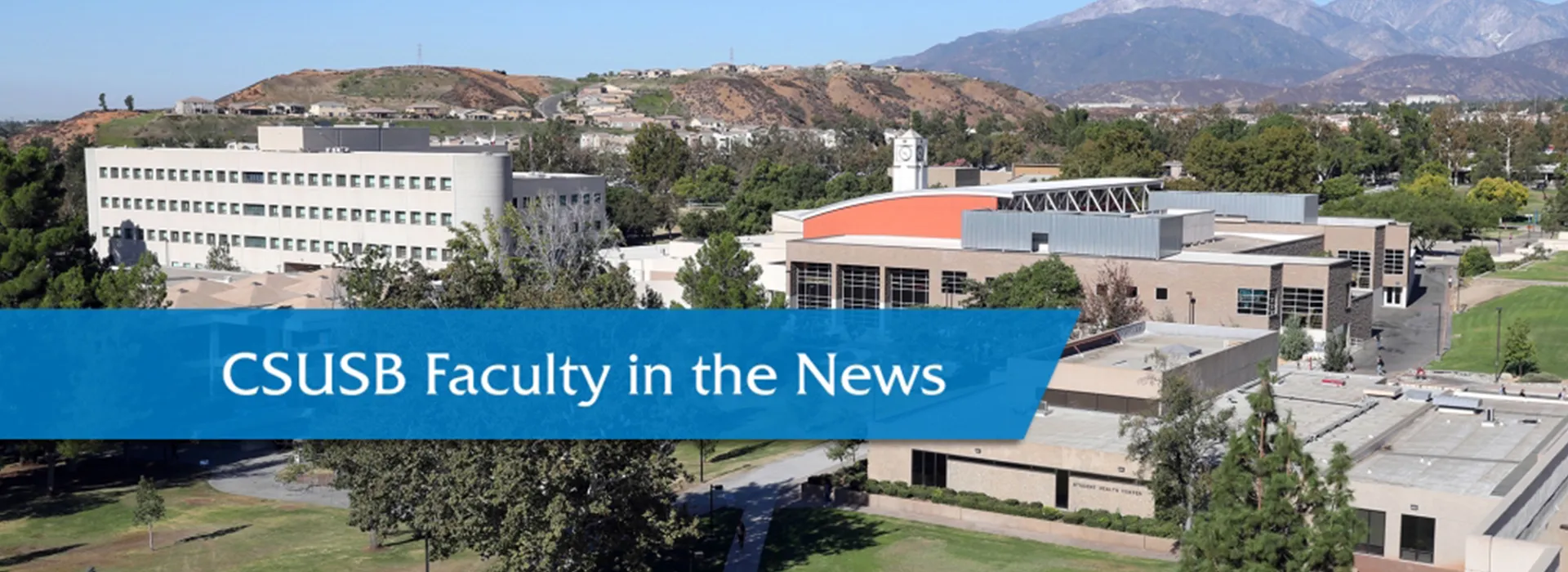NOTE: Faculty, if you are interviewed and quoted by news media, or if your work has been cited, and you have an online link to the article or video, please let us know. Contact us at news@csusb.edu.
CSUSB professor: Some Americans are misinformed about the Coronavirus. How responsible is the media?
FiveThirtyEight
April 20, 2020
In an opinion column, Meredith Conroy, CSUSB assistant professor of political science, wrote: “When the president contradicts agency officials and medical experts (oftentimes from behind the very same podium), it can be difficult for Americans to keep the facts straight. That is why the media’s role as a watchdog is vital to democracy — its job is to hold government officials accountable and investigate the veracity of the administration’s claims, especially when they are in response to rapidly evolving events.
“But the media has come up short in previous times of crisis, deferring too much to the administration to dictate the terms and frame the events, at the expense of including critical viewpoints. And the notion of a watchdog press has taken on a new meaning. In our fragmented media environment, viewers increasingly choose their news based on their politics and news outlets are incentivized to pick a side — tout the president’s message uncritically to cater to a conservative audience, or criticize the administration’s every move in order to appeal to a more liberal audience. This, in turn, creates a misinformed public. We see this play out with the coronavirus — Republicans and Democrats view the basic facts differently, and that threatens a functioning democracy.”
Read the complete article at “Some Americans are misinformed about the Coronavirus. How responsible is the media?”
1995 Oklahoma City bombing ‘marked a new era in terrorism’ against the U.S., CSUSB professor says
The Sacramento Bee/McClatchy News Service
April 19, 2020
Brian Levin, director of the Center for the Study of Hate and Extremism at California State University, San Bernardino, was interviewed for an article marking 25 years since the Oklahoma terrorist bombing by a right-wing extremist that killed 168 people, including 19 children.
“The Oklahoma City bombing marked a new era in terrorism against the United States,” Levin said. “Timothy McVeigh basically wrote a template for terrorists that continues to this day.
“It turned out to be in many ways an instructors’ guide, not only for right-wing extremists but extremists of all stripes, to carry out the kind of mass attacks that previously we saw only from organized groups.”
But in another way, Levin said, the Oklahoma City bombing was the end of an era.
“Back then, we could categorize these extremists — anti-government, anti-abortion,” he said. “But now we have folks picking and choosing from a buffet of grievances on the internet. And the question is, will this coronavirus pandemic serve as a catalyst for another act of terrorism?”
Read the complete article at “25 years after Oklahoma City bombing, right-wing extremism in midst of resurgence.”
WHO defunding 'not surprising' for those familiar with U.S. unilateralism, CSUSB professor says
MEHR News Agency (Iran)
April 17, 2020
In an interview with the Iranian news service, CSUSB professor of history David Yaghoubian said he believes that U.S. President Donald Trump’s controversial decision to halt the World Health Organization funds is a continuation of the administration’s unilateralism in the international arena.
The abrupt decision on April 14 received widespread backlash from across the world where officials and activists voiced concern over the defunding amid the global fight against a pandemic.
Yagoubian noted that Trump’s measure “should not surprise anyone who has been following the steady path of unilateralism and belligerence that the Trump regime has pursued since its unfortunate inception.”
Read the complete article at “WHO defunding 'not surprising' for those familiar with US’ unilateralism: expert.”
CSUSB professor emeritus writes on Ethiopia prime minister’s effort during coronavirus pandemic
ZeHabesha
April 20, 2020
In an opinion column, Alemayehu G. Mariam, CSUSB professor of political science, emeritus, wrote: “On March 24, 2020, Abiy Ahmed, Prime Minister of Ethiopia, proposed a three-point plan to the G-20 to proactively deal with the inevitable health, economic and social fallout of the COVID-19 crises in Africa.”
Read the complete article at “G-20 partially responds to PM Abiy’s COVID-19 Africa rescue proposal: Let’s give credit where it is due.”
These news clips and others may be viewed at “In the Headlines” at inside.csusb.edu.
